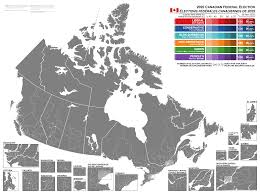Voting in Canada 2025: Importance and Implications

Introduction
The upcoming federal election scheduled for 2025 is poised to be a pivotal moment for Canada’s democratic landscape. With the nation facing challenges such as climate change, economic recovery post-pandemic, and social justice issues, voting will be crucial in shaping the future. Understanding the voting system, participation rates, and the issues at stake will empower Canadians to engage effectively in the electoral process.
Current Landscape of Voting in Canada
As of now, Canada operates under a parliamentary democracy, where federal elections occur approximately every four years. The last federal election was held in September 2021, which resulted in a minority government led by the Liberal Party. Analysts predict that voter turnout might increase in 2025, particularly among younger voters who have shown greater engagement in recent years.
Recent trends also indicate a growing recognition of the importance of mail-in and advanced voting options, spurred by the COVID-19 pandemic. Elections Canada has noted a significant rise in mail-in ballots, which are projected to remain popular in future elections.
Significant Issues for the 2025 Election
The 2025 elections will likely focus on key socio-economic issues. Climate change is at the forefront, with Canadians seeking actionable plans from their leaders. Economic recovery remains a priority as citizens look for measures to stabilize job markets and address the rising cost of living.
Additionally, social justice issues such as Indigenous rights, gender equality, and immigration policies will shape voter sentiment. The ability of political parties to address these issues effectively could influence voter turnout and preferences significantly.
Future Outlook and Engagement
To foster a stronger democracy, it is vital for Canadians to engage in discussions around these key issues well before election day. Grassroots movements and community dialogues can motivate voters to educate themselves and participate actively in the democratic process. Furthermore, initiatives aimed at increasing voter registration and accessibility will play a crucial role in driving up participation rates.
Conclusion
The 2025 federal election in Canada represents an opportunity for citizens to voice their opinions and make impactful decisions regarding the country’s future. Increased engagement in the electoral process will not only enhance democratic practices but also ensure that the government is held accountable to the needs of its citizens. As we look towards the 2025 election, it is imperative that all Canadians prepare to exercise their right to vote, emphasizing the importance of each individual voice in shaping the nation’s path.









